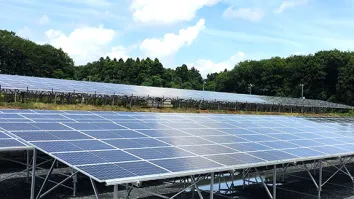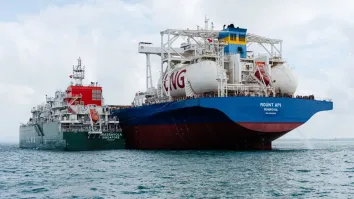Exploring carbon pricing revenue recycling for securing raw materials of biomass co-firing in ASEAN
By Dr Ambiyah Abdullah, Zahrah Hanifah Budiman, Suwanto, and Beni SuryadiWithout any mitigation measures, the energy demand of ASEAN in 2050 is projected to increase by triple the 2020 value due to the population and economic growth of the region. Coal is projected to account for the significant shares for approximately 43% and 22% of the total ASEAN’s electricity generation and primary energy supply in 2050, respectively.
High dependency on coal is projected to shift the region to start to import coal in the late 2030s. Eventually, this puts the region on the high uncertainty for meeting energy supply and affordability in the region.
To also meet the region’s commitment for global emission reduction efforts, finding an alternative way to reduce the dependence on fossil fuels gradually becomes critical for the region, which utilisation of biomass co-firing can be one option. The proportionally blended biomass into coal power plant could gradually reduce the emission generated by coal power plants.
However, the utilisation of biomass blended into the coal power sector in the region has several challenges that hinder its utilisation rate namely securing raw materials of biomass. Land competition, technical issues, and price are three key major things that affect significantly the security of raw material supply of biomass in ASEAN. The huge area required for plantation causes land competition between biomass and other land uses. The capacity needed for storage and the unmet mixture composition of biomass are two key technical issues of biomass in the region.
Adding to these challenges, the price of biomass raw material is still higher compared to the price of coal, making the biomass co-firing power plant cost more than the pure coal power plant. It is also cheaper than the export price of biomass from the global market. As a result, the local producer of biomass would also prefer to export their products than supply the domestic need for biomass. Tackling these challenges would need a holistic policy approach that touches all stages along the biomass supply chain from upstream to downstream in the region.
Biomass pricing in ASEAN varies depending on the quality and supply of the feedstock. Initially, the price of raw biomass is relatively low but the processing cost for converting raw biomass into ready-used biomass cofiring raises its price. Additionally, the difference in each raw materials treatment process and locations which influence the transportation costs also adds the factor of extra cost. Wood pellets (WP) that have a high production rate and Palm Kernel Shells (PKS) are largely produced to be exported with a premium cost of $70 to more than $120/tonne in the Asian Market. The biomass price could also fluctuate rapidly. Thus, the price setting for biomass-based on market condition needs to be influenced by several pricing policy instruments to make the biomass price becomes more competitive compared to other fuel sources in the region.
Several incentives have been implemented to boost the utilisation of biomass cofiring in ASEAN, namely feed in tariffs and tax reduction. For example, Thailand applies the combination of both incentives to boost the utilisation of biomass co-firing power plant. However, the current incentive scheme to control the price of biomass is not effective to secure the supply of raw materials of biomass. The inclusion of a mandatory target of biomass into the existing regulation and the development of an integrated biomass collection system is proposed to be also added to the incentives. Although additional proposed measures can help in securing the supply of biomass raw materials, its effectiveness does not solve two bottlenecks of the existing biomass pricing scheme (limitation of the government budget and lack of upstream incentive coverage).
Taking a momentum of carbon pricing discussion in the region, the revenue of carbon pricing itself could be potentially recycled and channelled into incentive schemes for biomass co-firing. Revenue recycling means reallocation of the revenue gained from imposing carbon pricing on a specific sector to be used as subsidy in other selected sectors. A recent study found that revenue recycling from carbon pricing could increase the biomass co-firing ratio in China. However, channelling revenue recycling of carbon pricing without redesigning the coverage structure of biomass incentive would not secure the supply of biomass raw materials wholly.
The revenue recycling of carbon pricing needs to be redesigned as additional incentives directly on the domestic selling price of raw material and reducing transportation costs of biomass. As the region is in the early phase of carbon pricing implementation, a regional knowledge sharing platform that facilitates cross-sectoral coordination and collaboration along upstream and downstream sectors affected by carbon pricing would be also required.


















 Advertise
Advertise







